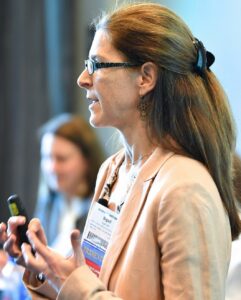
Sigall Bell, M.D., the Director of Patient Safety and Discovery for the OpenNotes research community, who led some of these studies, says, “These findings support greater efforts to engage all patients in health information access.”
Patient-reported errors
More than 23,000 patients across three large health systems, including Beth Israel Deaconess Medical Center (BIDMC) in Boston, participated in the online survey fielded in 2017 and published last month by JAMA Network Open. About 1-in-5 said they found an error in the clinical notes, and nearly half of those errors were considered serious or very serious by the patients.
At two of the three sites, those who reported finding serious errors in their records were asked to describe the mistakes they found. The patient-reported errors related to current or past diagnoses, inaccurate medical histories, and medication lists were among the most frequently cited. The authors suggest that sharing notes with patients may provide a new avenue for engaging patients as safety partners.
Counteracting health care disparities
Beginning with an exploratory effort involving primary care physicians at BIDMC, Geisinger and Harborview Medical Center in Seattle, the open notes movement has grown steadily over the past decade. More than 50 million patients in the U.S. currently have access to the notes written by clinicians after a visit, usually through secure, online patient portals.
From the beginning, there has been concern that patient access to electronic health information would reinforce or widen socio-economic disparities in health care by primarily benefiting those with internet-enabled devices, broadband service and strong health literacy.





